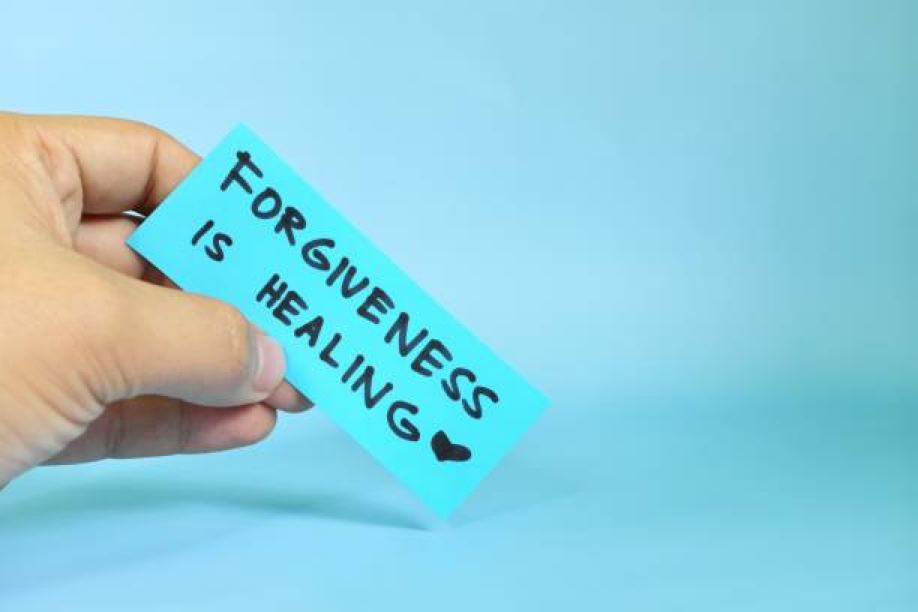Staff
Competency 12: Food & Mood
Posted by Holy Family Counseling Centers Staff on April 20, 2020
We have reached the time of year when society returns to the idea of renewal, treating the turning of the calendar as a jump-off point to make changes so that the next year will lead us to a better version than we are now. Most oft en, these resolutions involve some form of eating healthy and exercise. Nearly as oft en, these resolutions are forgotten within a couple of months as life begins to take hold and priorities shift . Fear not, while we will cover the topic of healthy eating in this newsletter, it will not be in the same vein as a resolution to lose weight or gain muscle (both worthy goals). In our monthly web conference following this newsletter, we were asked about how the food we eat, and when we eat it, can have an effect on our mental health.
A. The Second Brain
Have you ever had a ‘gut feeling’ or ‘butterflies in your stomach’? These are more than just sayings but physical symptoms that can also have an affect on our reactions. Th e link between our gut health and mental health has become a focus of much research in the past 10 years. Dubbed “the second brain” , our gut is not only responsible for communication with the brain for the necessities of eating and drinking, it is also responsible for 90% of the serotonin (one of the ‘happy’ hormones) produced in our bodies. In addition, a healthy gut can help us combat stress and is beneficial for our overall immunity as there are hundreds of millions of bacteria that live and thrive inside of us.
In order to have a functioning gut-brain duo, it requires wholesome nutrition. Think of your body as a fine tuned sports car. Sure, it will run on regular unleaded gas, and you are bound to get miles out of it, but how much better will it run when you give it the premium unleaded, allowing it to handle all of the blind curves and bumps in the road of life? When we look at the food we eat, the regular unleaded is oft en the highly processed foods; fast food, sodas, sugary snacks, etc. Th ey off er a boost and allow us to keep moving, but that may also lead to potential damage and the need for costly maintenance. Foods that are more nutrient-dense; fresh fruits and vegetables, fatty fi sh, and legumes are the premium fuel that not only keep us fueled, but also help clean the system as they are burned through.
When we experience depression or anxiety, this has a direct effect on our digestive system, often speeding up, or slowing down how quickly food moves through our system and how much nutrients our body takes during the process. Oftentimes, people who are severely depressed will lose extreme amounts of weight (think about someone suffering the loss of a longtime spouse). Meta-analyses of various diets have shown that people who maintain nutrient rich diets, or change to nutrient rich diets, show a 25-35% decrease in depressive and anxious symptoms.
B. Food and Your Mood
Snickers marketing department jumped on the idea of the gut and brain being linked. Their commercials showing that people aren’t themselves when they’re hungry have become one of the most memorable ad campaigns of recent years. The idea that when we are hungry that we can become angry, hence the term “hangry” has become a popular term. Do you realize in your own life when lack of food, or lack of the right food, affects how you are treating yourself? Or other people? A simple step to understanding our eating habits is to give attention to what and when we are eating. The morning donuts are great, but they also cause a sugar crash a little while later that can make us feel tired or keep us dragging. Coffee is one of the best morning drinks and has tons of health benefits, but coffee too late in the day can begin to disrupt our natural sleep cycles, which also can have a negative affect on our mood. Understanding how different food effect our well-being has numerous benefits to our overall mental, physical, and emotional health. And eating healthier doesn’t necessarily mean foregoing all that we love to snack on.
As a matter of fact, this scripture is a wonderful reminder that it is a good and godly thing to find satisfaction in the food we partake of. In Ecclesiastes (3:13) we read, “That each of them may eat and drink, and find satisfaction in all their toil—this is the gift of God.” awareness of what we are eating does not mean that a fad diet is the answer. Eat, drink, be satisfied, and thank God for what he has blessed us with (this writer thanks him for the jalapeno sausage roll from QT, but only once a week!).
C. Tips for Food to positively affect your mood
Our individual views of food, the medications we take, the stages of life we are in, and where we are from will always be a large part of how we view food and what we may consider nutrient rich, or a snack. However, there are some common tips that can be followed that research has shown to be most beneficial for our health. The website Mind.org offers the following advice for healthy eating:
Eating regularly: The vulnerable person allows their emotional process when they’re having a rough time, but knows that they have the resources and abilities to find their own path and get their needs met. They can ask for help but won’t take a ‘No’ as a personal slight. They will respect another’s autonomy to set a boundary.
Quick tips:
- Eating breakfast gets the day off to a good start. •
- Instead of eating a large lunch and dinner, try eating smaller portions spaced out more regularly throughout the day.
- Avoid foods which make your blood sugar rise and fall rapidly, such as sweets, biscuits, sugary drinks, and alcohol.
Staying hydrated: If you don’t drink enough fluid, you may find it difficult to concentrate or think clearly. You might also start to feel constipated (which puts no one in a good mood).
Quick tips:
- It’s recommended that you drink between 6–8 glasses of fluid a day.
- Water is a cheap and healthy option.
- Tea, coffee, juices and smoothies all count towards your intake (but be aware that these may also contain caffeine or sugar).
Getting your 5 a day: Vegetables and fruit contain a lot of the minerals, vitamins and fiber we need to keep us physically and mentally healthy. Eating a variety of different coloured fruits and vegetables every day Whatever your diet, why not do some research into other foods that contain protein, and find something new to try?
Managing caffeine: Caffeine is a stimulant, which means it will give you a quick burst of energy, but then may make you feel anxious and depressed, disturb your sleep (especially if you have it before bed), or give you withdrawal symptoms if you stop suddenly. Caffeine is in: tea, coffee, chocolate, cola and other manufactured energy drinks.
Quick tips:
- If you drink tea, coffee or cola, try switching to decaffeinated versions.
- You might feel noticeably better quite quickly if you drink less caffeine or avoid it altogether.
- Avoiding coffee after 2pm is also ideal.
Eating the right fats: Your brain needs fatty acids (such as omega-3 and -6) to keep it working well. So rather than avoiding all fats, it’s important to eat the right ones. Healthy fats are found in: oily fish, poultry, nuts (especially walnuts and almonds), olive and sunflower oils, seeds (such as sunflower and pumpkin), avocados, milk, yogurt, cheese, and eggs.
Quick tips:
- Try to avoid anything which lists ‘trans fats’ or ‘partially hydrogenated oils’ in the list of ingredients (such as some shop-bought cakes and biscuits). They can be tempting when you’re feeling low, but this kind of fat isn’t good for your mood or your physical health in the long run.means you’ll get a good range of nutrients.
Looking after your gut: Sometimes your gut can reflect how you are feeling emotionally. If you’re stressed or anxious this can make your gut slow down or speed up. For healthy digestion you need to have plenty of fiber, fluid, and exercise regularly. Healthy gut foods include: fruits, vegetables and wholegrains, beans, live yogurt and other probiotics.
Quick tips:
- It might take your gut time to get used to a new eating pattern, so make changes slowly to give yourself time to adjust.
- If you’re feeling stressed and you think it is affecting your gut, try some relaxation techniques or breathing exercises.
Getting enough protein: Protein contains amino acids, which make up the chemicals your brain needs to regulate your thoughts and feelings. It also helps keep you feeling fuller for longer. Protein is in: lean meat, fish, eggs, cheese, legumes (peas, beans and lentils), soya products, nuts and seeds.
Conclusion
I once asked a nutritionist the best way to view the food I was eating if I wanted to eat healthier. Her advice was to stop looking at foods as good or bad, as a reward or punishment, but rather in the sense of needed and not needed. Fresh fruits and vegetables are needed for your body, the Caramel Macchiato is not. The essence of eating right, and keeping our moods regulated, is to focus on the things our body needs more than the things it wants. So whether you eat or drink or whatever you do, do it all for the glory of God. – 1 Corinthians 10:31. What if you sat down to dinner every night with a heart of gratitude for the plate in front of you, knowing food was a way to care for the gift of the body God has given you?






